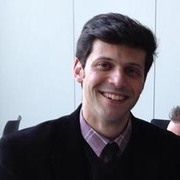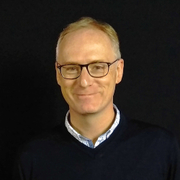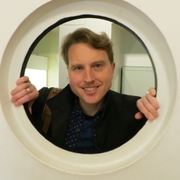- Level Foundation
- المدة 15 ساعات hours
- الطبع بواسطة The University of Edinburgh
-
Offered by

عن
Philosophy, Science and Religion mark three of the most fundamental modes of thinking about the world and our place in it. Are these modes incompatible? Put another way: is the intellectually responsible thing to do to ‘pick sides’ and identify with one of these approaches at the exclusion of others? Or, are they complementary or mutually supportive? As is typical of questions of such magnitude, the devil is in the details. For example, it is important to work out what is really distinctive about each of these ways of inquiring about the world. In order to gain some clarity here, we’ll be investigating what some of the current leading thinkers in philosophy, science and religion are actually doing. This course, entitled ‘Science and Philosophy’, is the first of three related courses in our Philosophy, Science and Religion Online series. The first launch is now closed to enrolments. We will launch a new version of the course in July 2018. The course will address four themes each presented by guest lecturers: 1. Are Science and Religion in conflict? (Professor Michael Murray, Franklin & Marshall) 2. Neuroscience and Free Will (Professor Al Mele, Florida State) 3. Creationism and Evolutionary Biology--Science or Pseudo-science? (Dr. Mark Harris and Dr. David de Pomerai, University of Edinburgh) 4. Do Scientific claims constitute absolute truths? (Professor Martin Kusch, University of Vienna) The second and third courses in the Philosophy, Science and Religion series are ‘Philosophy and Religion’ and ‘Religion and Science’. They may be taken in any order and completing all three courses will give you a broader understanding of this fascinating topic. Look for: • Philosophy, Science and Religion II: Philosophy and Religion • Philosophy, Science and Religion III: Religion and Science Check out our trailer to hear more: https://youtu.be/OifqTI5VKek You can also follow us on Twitter at https://twitter.com/EdiPhilOnline and you can follow the hashtag #psrmoocالوحدات
Orestis Palermos introduces the course
1
Discussions
- Introduce yourself
1
Videos
- Overview of the course by Dr. Orestis Palermos
1
Readings
- Accompanying Textbook: Philosophy, Science and Religion for Everyone
Lesson 1: Alfred Mele
5
Assignment
- 1: Libet’s experiment
- 2: Observing changes in the brain
- 3: Is there a problem with the three studies presented?
- 4: The point of no return
- 5: Libet studies
1
Discussions
- Does it matter if we have free will or not?
7
Videos
- Introduction
- Study 1
- Study 2 and 3
- Problem 1
- Problem 2
- Problem 3
- Conclusion
2
Readings
- [YouTube video] The Libet Experiment: Is Free Will Just an Illusion?
- Free Will and Science
OPTIONAL ESSAY QUESTION
1
Peer Review
- Does science show that there is no such thing as free will?
Further Reading
3
Readings
- Al Mele - Free Will and Neuroscience
- Free Will - The Stanford Encyclopedia of Philosophy
- Podcasts
Lesson 1
1
Assignment
- 1: Definition of science
2
Videos
- Conflicting in Principle
- Non-Conflicting in Principle
Lesson 2
1
Assignment
- 2: The relationship between science and religion
3
Videos
- Potentially Conflicting
- Can Science Support Religious Beliefs?
- A Theoretical Challenge
Lesson 3
1
Assignment
- 3: Evolutionary psychology
2
Videos
- A Challenge from Evolutionary Psychology
- Summary
Optional essay question
1
Peer Review
- Peer-reviewed essay question
Reading
1
Readings
- Further Reading on Religion & Science
Satellite content
1
Readings
- [Video Lecture] Tom McLeish on the Theology of Science
Lesson 1
1
Assignment
- 1: Relativists about morality
1
Discussions
- Does disagreement about a subject constitute a good reason to be a relativist about the subject matter in question?
2
Videos
- What is Relativism?
- The Sociology of Science
Lesson 2
1
Assignment
- 2: Karl Popper and scientific rationality
2
Videos
- Kuhn and the Structure of Scientific Revolutions
- Relativism and Science
Lesson 3
1
Assignment
- 3: Paul Feyerabend and scientific experiment and theoretician
1
Videos
- The Future of Relativism in the Study of Science
Optional essay question
1
Peer Review
- Peer-reviewed essay question
Satellite content
1
Readings
- [Video Lecture] Stathis Psillos on Scientific Realism
External Links
2
Readings
- Further Reading on Relativism
- Podcasts, Interviews, and Videos
Lesson 1: Mark Harris
3
Assignment
- 1: The creation of creationism
- 2: Earth Creationists
- 3: What is scientific?
1
Discussions
- How would you distinguish science from ‘pseudo-science’?
3
Videos
- Introduction
- The Creation of Creationism
- 'True Science'?
1
Readings
- Science and Pseudoscience
Lesson 2: Professor David de Pomerai
8
Assignment
- 4: Common ancestor
- 5: Natural selection
- 6: Convergent evolution
- 7: Punctuated equilibria
- 8: Evolution
- 9: Ediacaran fossils
- 10: Arms race
- 11: DNA
1
Discussions
- How important is Darwin’s natural selection as an evolutionary mechanism in modern evolutionary biology?
9
Videos
- The Concept of Evolution
- Genetic Variation
- Selection
- The Species Concept and Evolution
- Gradualism Versus Punctuated Equilibrium
- The Origin of Life
- The Origin of Animals
- Evolution of Behaviour; Sexual Selection and Co-evolution
- Evolution of Human Culture
1
Readings
- Harris & De Pomerai - Creationism and evolutionary biology
Summary: Mark Harris
2
Videos
- Creation, Evolution and Science
- Summary
1
Readings
- Post-Course Survey
External links
2
Readings
- Further Reading on Creationism and Evolutionary Biology
- Podcasts, Interviews, and Videos
Optional essay question
1
Peer Review
- Optional essay question
Auto Summary
Explore the interplay between Philosophy, Science, and Religion in this foundational course led by top academics. Delve into debates on conflicts between science and religion, neuroscience and free will, creationism vs evolutionary biology, and the nature of scientific truths. Perfect for those interested in Health & Fitness, this 900-minute course is part of a series and offers flexible subscription options. Join to gain a comprehensive understanding of these fundamental modes of thought.

Dr J Adam Carter

Dr Orestis Palermos

Professor Mark Harris

Professor Duncan Pritchard


